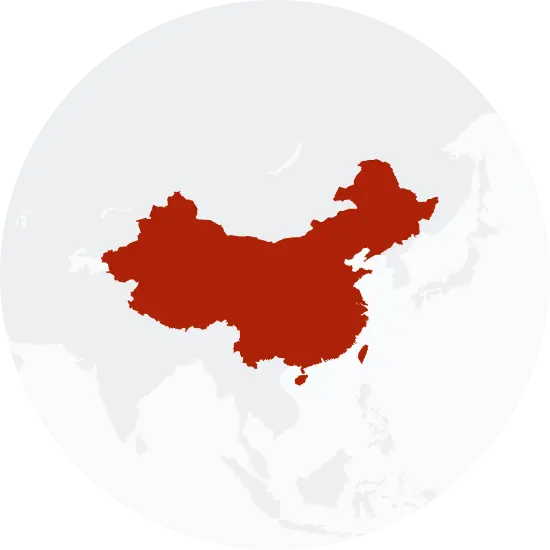Explore the Family Name Fu
How common is the last name Fu in the United States?
The surname Fu has witnessed a significant increase in popularity over the past decade, according to data from the Decennial U.S. Census. In 2000, the name was ranked 5658th in popularity in the United States but by 2010, it had climbed to 4235th place, reflecting a growth rate of 25.15 percent. The number of people bearing this surname also surged during this period from 5624 to 8370, marking an impressive 48.83 percent jump. Furthermore, its proportion per 100,000 people increased from 2.08 to 2.84, indicating a 36.54 percent rise.
| 2000 | 2010 | Change | |
|---|---|---|---|
| Rank | #5,658 | #4,235 | 25.15% |
| Count | 5,624 | 8,370 | 48.83% |
| Proportion per 100k | 2.08 | 2.84 | 36.54% |
Race and Ethnicity of people with the last name Fu
Analyzing the ethnicity associated with the surname Fu, the Decennial U.S. Census data reveals that it is predominantly linked to the Asian/Pacific Islander community. Despite a minor decrease of 0.07 percent between 2000 and 2010, this group still accounts for over 94 percent of those bearing the Fu surname. Individuals identifying as two or more races make up around 2 percent of the Fu surname holders, showing a mild reduction of 1.48 percent over the decade. The proportion of people with this surname identifying as white saw a growth of 15.26 percent, though they still represent only about 2.19 percent of the total. The percentage of Fu surname bearers identifying as Hispanic decreased slightly by 11.52 percent. Notably, there were no instances of people with this surname identifying as Black or American Indian and Alaskan Native in both years.
| 2000 | 2010 | Change | |
|---|---|---|---|
| Asian/Pacific Islander | 94.13% | 94.06% | -0.07% |
| White | 1.9% | 2.19% | 15.26% |
| Two or More Races | 2.03% | 2% | -1.48% |
| Hispanic | 1.65% | 1.46% | -11.52% |
| Black | 0% | 0% | 0% |
| American Indian and Alaskan Native | 0% | 0% | 0% |
Fu ancestry composition
23andMe computes an ancestry breakdown for each customer. People may have ancestry from just one population or they may have ancestry from several populations. The most commonly-observed ancestry found in people with the surname Fu is Chinese, which comprises 87.0% of all ancestry found in people with the surname. The next two most common ancestries are Manchurian & Mongolian (2.5%) and Korean (2.0%). Additional ancestries include Chinese Dai, Vietnamese, British & Irish, French & German, and Japanese.
Ready to learn more about your ancestry? Get the most comprehensive ancestry breakdown on the market by taking our DNA test. Shop 23andMe
| ANCESTRY BREAKDOWN | COMPOSITION |
|---|---|
| Chinese | 87.0% |
| Manchurian & Mongolian | 2.5% |
| Korean | 2.0% |
| Other | 8.5% |

Possible origins of the surname Fu
Your DNA provides clues about where your recent ancestors may have lived. Having many distant relatives in the same location suggests that you may all share common ancestry there. Locations with many distant relatives can also be places where people have migrated recently, such as large cities. If a large number of individuals who share your surname have distant relatives in a specific area, it could indicate a connection between your surname and that location, stemming from either recent ancestral ties or migration.
Based on 23andMe data, people with last name Fu have recent ancestry locations in China and Taiwan.
| RECENT ANCESTRY Location | Percentage |
|---|---|
| Guangdong, China | 40.30% |
| Zhejiang, China | 39.80% |
| Jiangsu, China | 39.50% |
| Fujian, China | 39.50% |
| Shanghai, China | 39.50% |
What Fu haplogroups can tell you
Haplogroups are genetic population groups that share a common ancestor on either your paternal or maternal line. These paternal and maternal haplogroups shed light on your genetic ancestry and help tell the story of your family.
The top paternal haplogroup of people with the surname Fu is O-F8, which is predominantly found among people with East Asian & Indigenous American ancestry. Haplogroup O-F8 is descended from haplogroup O-M1359. Other common haplogroups include O-F11 and O-M307.1, which are predominantly found among people with East Asian & Indigenous American and East Asian & Indigenous American ancestry. Other surnames with similar common haplogroups are: Wu, He, Tang, Cheung, Lu, Zhou, Huang, Wang, Chen, Wong.
The most common maternal haplogroups of people with Fu surname are: A4, F1a1, D4. These most commonly trace back to individuals of East Asian & Indigenous American and European ancestry.
 Paternal Haplogroup Origins O-M1359
Paternal Haplogroup Origins O-M1359
Your paternal lineage may be linked to the Han Chinese
Haplogroup O-Page23 has been found in several populations of the Han Chinese ethnic group. The ancestors of the Han, called the Huaxia, lived in the upriver basin of the Yellow River 5,000-6,000 years ago. As agricultural technology improved, the Huaxia spread east and south, and became the Han Chinese. Over the last 2,000 years, there have been three major migrations of the Han southward. The first of these migrations occurred during the Jin Dynasty from 317 to 420 CE, when nearly one million people moved south. A second migration occurred during the Tang Dynasty, after the An-Shi Rebellion, between 755 and 762 CE. The last migration occurred during the Southern Song Dynasty, from 1127 to 1297 CE, when nearly 5 million people migrated southward. The Pinghua, a branch of Han in which haplogroup O2a2b1a1 is particularly common, may be descendants of indigenous minority groups that adopted Han culture during one such major migration event.
Your maternal lineage may be linked to the Hmong-Mien
Haplogroup F is particularly common in populations of Hmong-Mien speakers, one of the major language families in East Asia. This group includes the Lahu, Hmong, Lao, and Mien of southern China and Southeast Asia. Many of these groups are considered ethnic minorities in their countries, including in China, Vietnam, and Thailand.During the Vietnam War, from 1953 to 1975, the United States Central Intelligence Agency recruited many of the Hmong, Lao, Mien, and Lahu to fight for American interests in Laos against the North Vietnamese and the Pathet Lao. When the North Vietnamese and Pathet Lao gained control of the region, members of the ethnic groups recruited by the US were targeted, forcing many of the Hmong-Mien to flee the country. Many refugees resettled in the United States, especially in California and along the western seaboard.

What do people with the surname Fu have in common?
Spoiler alert: it's complicated. People with the same last name are usually no more genetically similar than a randomly sampled group of people from the same population. That said, people with the same surname are more likely to have similar ancestries than randomly sampled individuals. The reason is the tendency of people with similar cultural or geographical backgrounds to preferentially mate with one another. That's why people who share a surname may be more likely to share traits and tendencies in common than people within the general population. Check out the percentages below to see the prevalences of tastes, habits, and traits of people with your surname compared with prevalences among 23andMe users.
Preferences
Traits
Habits
Wellness
Are health conditions linked to the last name Fu?
The short answer is that, if there is an association between surname and health, it's usually more about your ancestry than your name. Individuals with a given surname are no more genetically similar than the general population but often have similar ancestries. The populations of people associated with those shared ancestries often have sets of genetic variations, also known as alleles, in common. Some of those alleles are associated with a greater likelihood of developing certain diseases.
Disease variant frequency by ancestry
Disease allele frequencies in populations associated with the surname Fu are shown below. Important Note: not everyone with a disease allele will develop these health condition




















